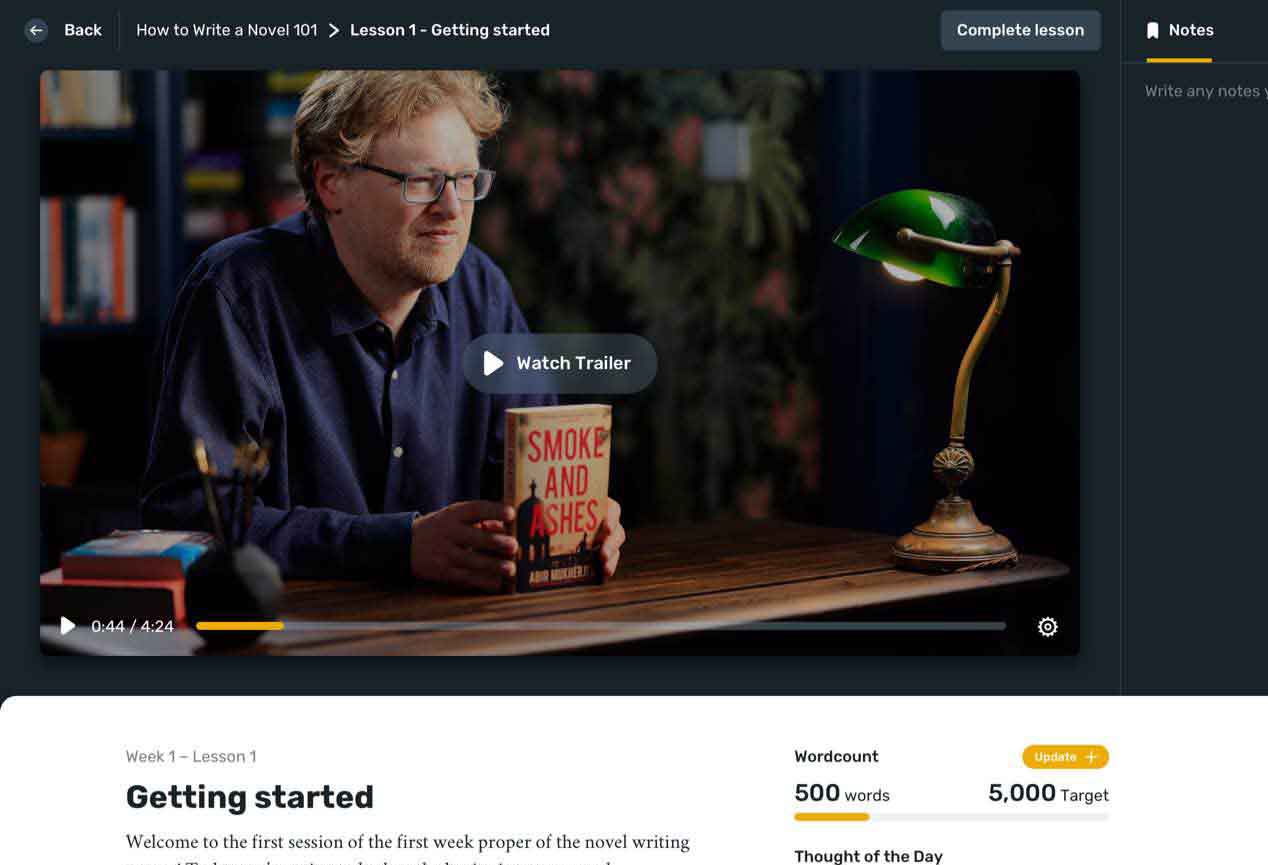Find the perfect editor for your next book
Over 1 million authors trust the professionals on Reedsy. Come meet them.
Choose a random occupation, a random personality trait, and the trait's opposite. Now, outline a train of events that explains how a person of your chosen occupation changes from having the random trait to having its opposite. Let's take, for example: "martial arts teacher," "shy," and "confident." What would make a shy martial arts teacher change into a confident one?Care for a double challenge? Try plotting the opposite path, too: a confident martial arts teacher turns into a shy person. What would cause that? Experiment with unusual occupations and traits to challenge yourself. Find a collection of traits for download at the end of this article.
Feel inspired? Share your story below.
Get your creative juices flowing with these similar writing prompts.
Looking for a writing exercise that gets you out of your chair? Decide what kind of store your main character likes to shop at. Go to that store and wander the aisles, looking for items your character would most be tempted to buy. Create a list of at least ten items, explaining why each caught your eye, and why you think your character would want the item. Bonus points for identifying your character's guilty pleasures and how she would justify buying those items.
Your protagonist sits down at a desk and begins penning a letter to his or her younger self. What would they tell their past selves? What regrets do they voice? What lessons have they learned? How have they changed? Write this imagined note yourself, in your protagonist's voice.
Develop your characters by placing them in a situation where they are faced with a challenge. For conflict inspiration, look no further than these classic moral dilemmas (and, of course, analyze them from the perspective of your character). For an example of a moral dilemma, search "The Trolly Problem."

NEW VIDEO COURSE
How to Write a Novel
Your story matters. Unlock your potential with daily video lessons from bestselling ghostwriter Tom Bromley, and finish your first draft in just 3 months.Learn more →
"There are two types of people: those that talk the talk and those that walk the walk. People who walk the walk sometimes talk the talk but most times they don't talk at all, 'cause they walkin'. Now, people who talk the talk, when it comes time for them to walk the walk, you know what they do? They talk people like me into walkin' for them," said Key in the 2005 film Hustle and Flow. Which of these two types are your characters? Write down an exchange between two of your characters that confronts this very difference between them.
Try your hand at conveying your character through action by first writing a list of physical traits that apply to your character. Next, with that list at hand, write a scene where something is happening - whether it's a conversation, laundry-folding, cooking, etc. Weave references to your character's physicality into the action.